Meadows or green grass? How wild can a business school campus really be?
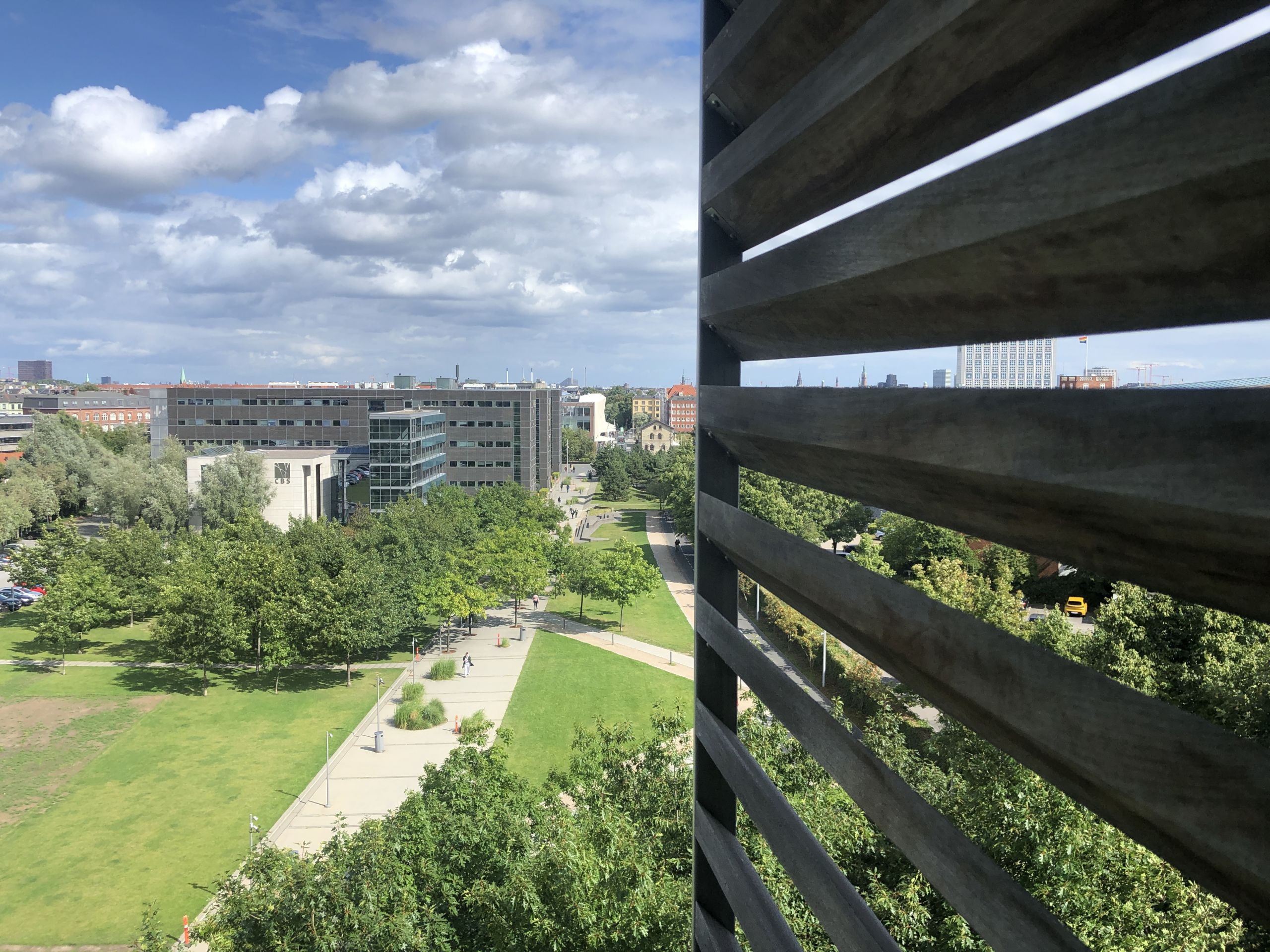
Grønningen is a place for both informal social hangouts and organized events such as Semester Start Celebration. Photo: CBS photo archive
Is green grass the epitome of a professional environment or can a business school campus be a wild meadow?
When the Permaculture garden was launched outside Kilen, creators and participants expressed a vision for a more biodiverse and wild campus. Transforming grass lawns into wild meadows is a popular way to support more diverse ecosystems. Wildflowers can also help control soil erosion and maintain soil quality by retaining moisture.
But CBS needs its grass lawns, not so much for the image as for the broader possibilities for usage, says Trine Lawson, Architect at Campus Services and responsible for the outdoor areas.
“First of all, we need outdoor space so we can have events such as the semester start party, so that’s why we keep the lawns that way. It would be difficult to have the events if the grass is really high.”
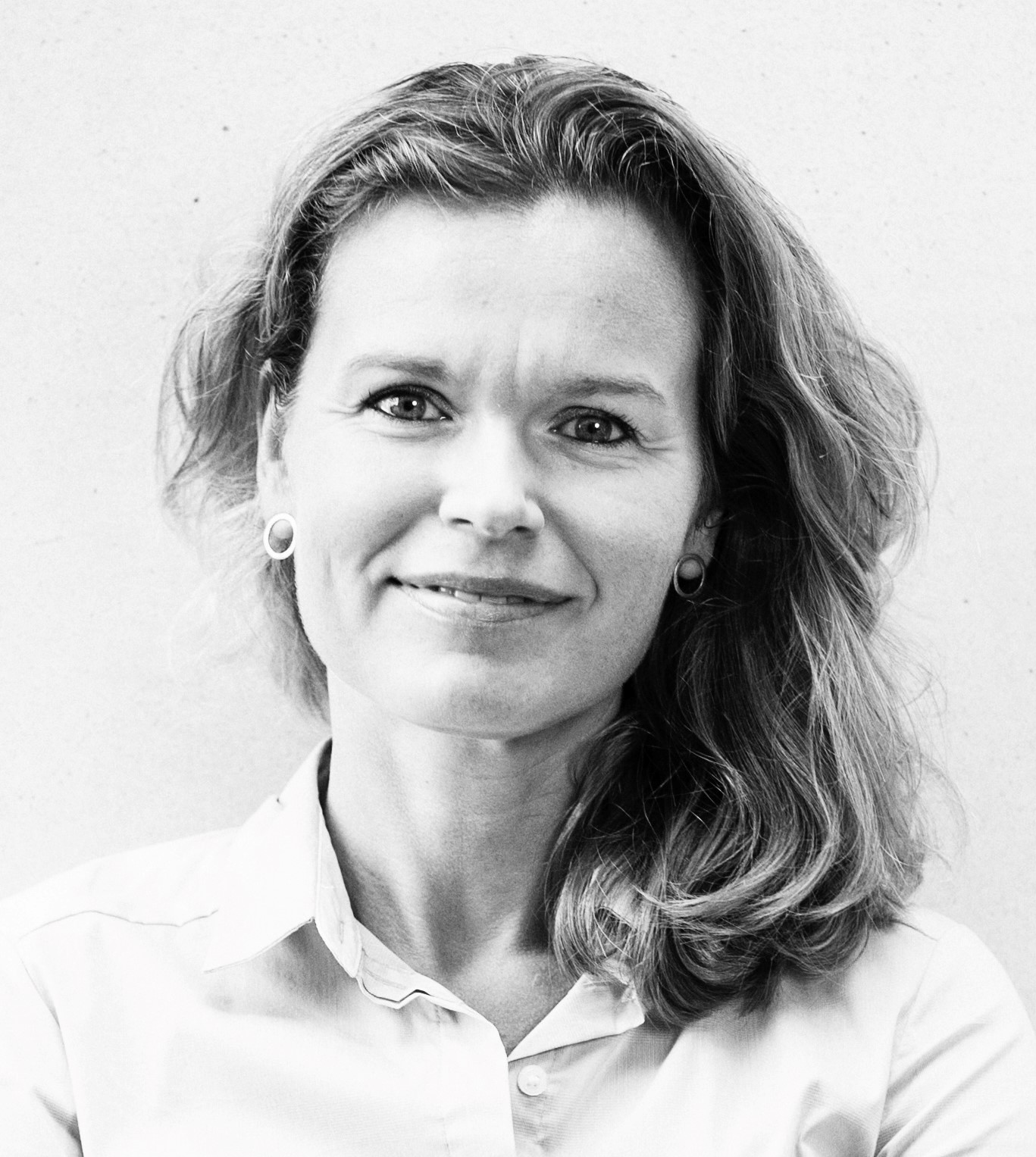
Trine Lawson, Architect at Campus Services and responsible for the outdoor areas
According to CBS Events & Room Administration, the grass between Solbjerg Plads and Kilen, known as Grønningen, is mainly a place for students to gather informally throughout the year. In terms of larger events CBS Semesterstartsfest (Semester Start Celebration, ed.) is the main event held there every year. The area is occasionally lent out to private sector events and this fall it will be used for the Copenhagen Half Marathon, which is moving its start and finish to Frederiksberg.
Maintaining CBS outdoor areas is outsourced to a private company that keeps the campus clean, mows the grass, removes snow and carries out other tasks. While Trine Lawson admits less grass could be cheaper to maintain, it would limit the functionality.
“Another sustainability agenda is wellbeing, and that we have areas where students can hang out and do activities so that’s a priority. That’s why we need to cut the grass. It looks nice as well.”
“Biodiversity has to find its way around other priorities.”
Frederiksberg Municipality thinks it is a priority?
“I can understand that the municipality are really into biodiversity because Frederiksberg has always had an image as a green area of Copenhagen, so of course it’s important, says Trine Lawson.
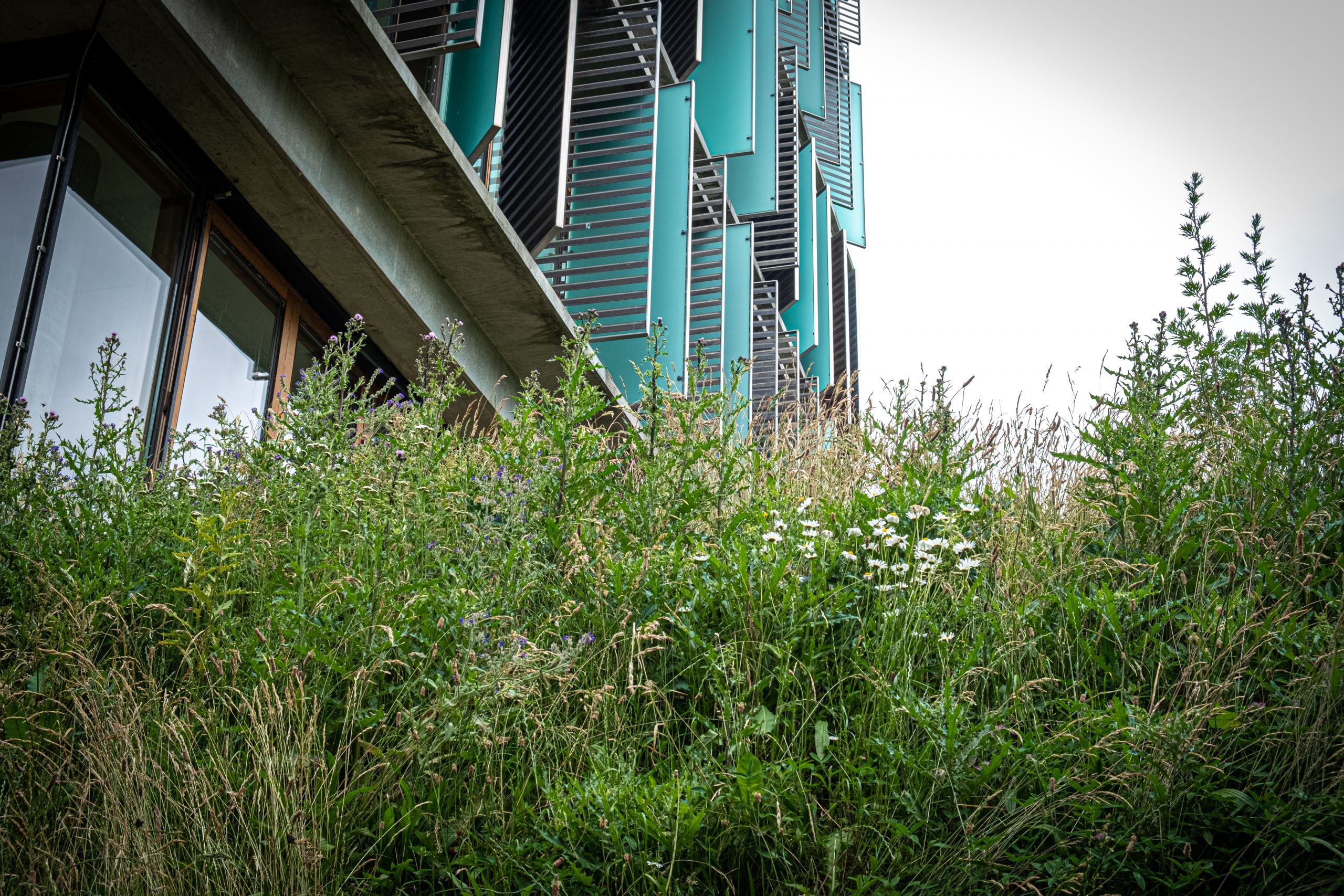
Photo: CBS photo archive
“By having a permagarden, we support the introduction of wild nature for people in the city so that’s a good idea. But biodiversity is a tiny area where we can’t make a difference. The priority should be where we can have the biggest impact, otherwise it’s greenwashing. If it didn’t have a social aspect and educational purposes, the Permagarden would be a bit greenwashing,” she says.
Finding the climate sinners
Her colleague Anna Gallaus Jacobsen, Project Manager, thinks wildflowers are a “good idea”. But as part of the group responsible for implementing the sustainability strategy at Campus Service, this is not their focus.
To bring CBS’ CO2 emissions the emphasis is indoors not outdoors.
“We’re trying to look at the bigger picture. We already do a lot to reduce emissions: efficient water and light systems, many things that people don’t notice – that’s what will work with CO2 emissions in the bigger picture.
“But,” she adds, “there could also be buildings with green roofs.” The group is aware that biodiversity is a rising issue, and will look into this in the future.
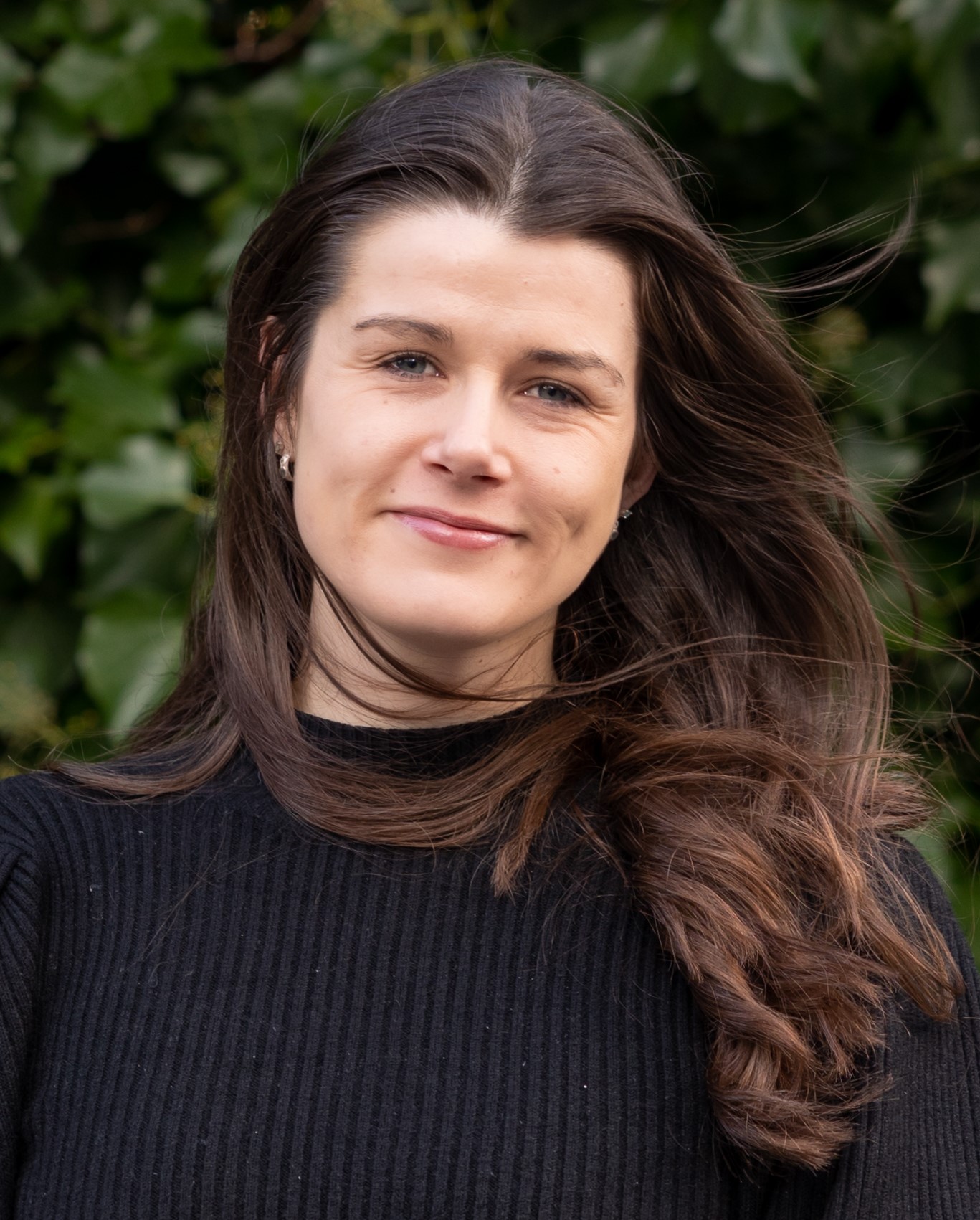
Anna Gallaus Jacobsen, Project Manager
Recent initiatives, propelled by the energy crisis, such as reducing the heat to 19 degrees and new sensors that turn off lights in areas have saved CBS around 30% on energy. Next up are “flying less and buying less”.
“We are looking into IT. We buy a lot of computers so it’s about using less and reusing. That will make the biggest difference.”
Together with colleagues Anna Gallaus Jacobsen is in the midst of mapping CBS CO2 emissions according to the Greenhouse Gas Protocol. From that they will get a baseline, from which to set future goals for reducing emissions.
Biodiversity is at the other end of the equation. Loss of wild nature is a driver of climate change, but planting flowers will not directly change CBS’ carbon footprint.
Biodiversity expert Anders Sanchez Barfod thinks rewilding urban areas can make a contribution.
“It makes a huge difference but we are not necessarily doing it for the sake of biodiversity. It contributes to linking city dwellers to nature and it has been proven in many scientific papers that being surrounded by green space contributes to mental wellbeing.”
Anders Sanchez Barfod is an Associate Professor of tropical plant resources at Aarhus University and Denmark’s representative to The Danish node of the Intergovernmental Science-Policy Platform on Biodiversity and Ecosystem Services (IPBES) – the biodiversity equivalent to IPCC.
He is hoping to get his university to join an international network for universities who want to rewild their campuses. No Danish university belongs to it yet.
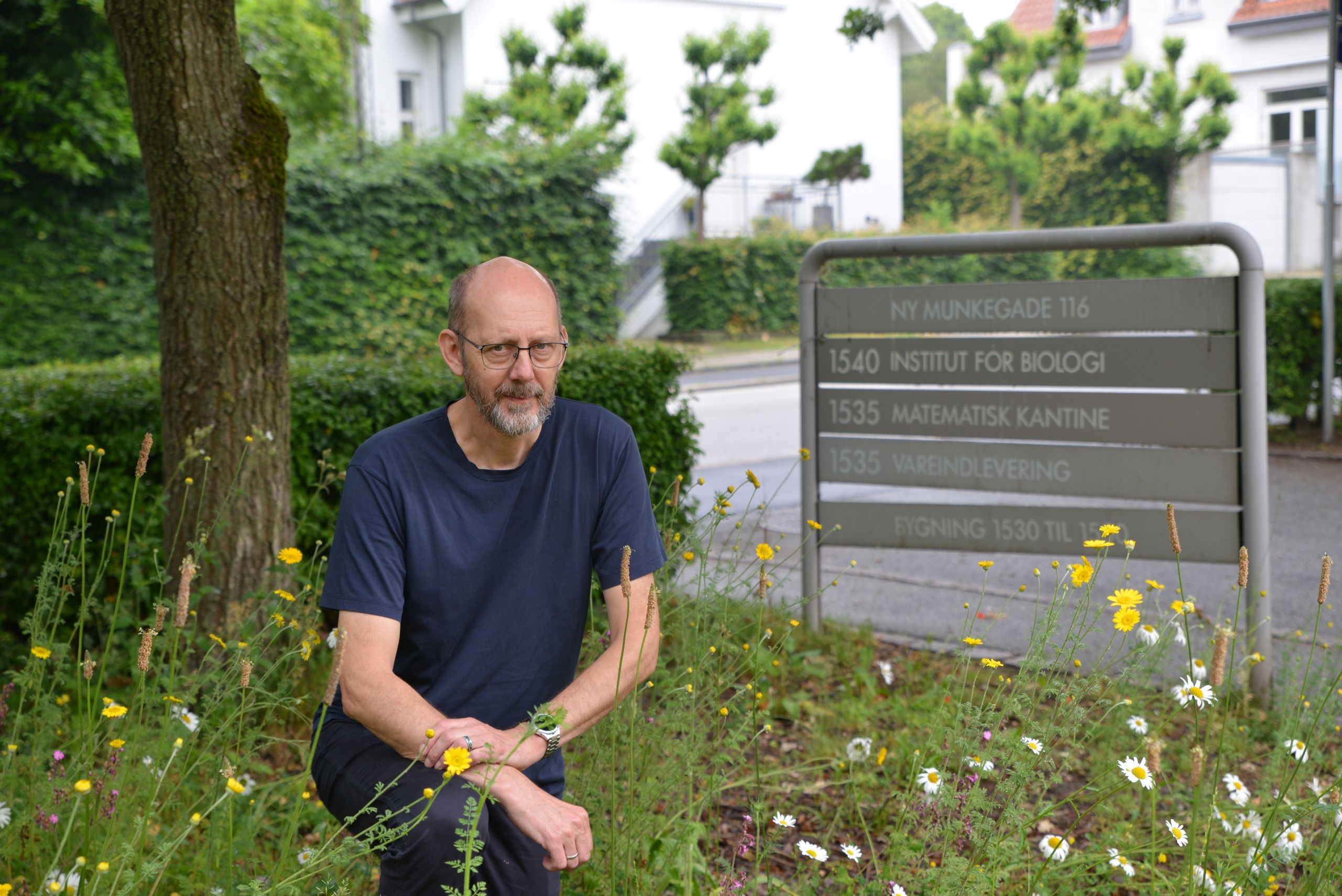
Biodiversity expert Anders Sanchez Barfod in one of Aarhus University’s wildflower meadows. Photo: Dennis Pedersen
A wilder campus will not contribute to saving rare and endangered plants. And carbon is mostly captured in woody vegetation. But wild flowerbeds have a real-world effect on ecosystems:
“In the middle of a draught, like we have now, try to compare the terrible yellow and dusty lawns that you see everywhere, with beds of wildflower, especially under trees. They are still green and maintain a wonderful cover.”
It not only looks better.
“If we get rain now, we risk flooding because the soil is so compacted, that it would not be able to take up water. A wild flowerbed will absorb more water so it will actually seep down in soil more easily so it’s also a way to mitigate flooding and prevent soil erosion.”
So can a small plot in a city make a difference?
“One small maybe not, but many small can. I think universities have a special responsibility to demonstrate nature-based solutions to the world around. We are supposed to be at the forefront with new agendas.”
Rambla de CBS
The Rambla, the treelined concrete path connecting Frederiksberg Metro station with Fasanvej is the main outdoor space and landmark on campus. It was developed together with Kilen and Solbjerg Plads around 20 years ago.
“Our buildings are starting to be in the maintenance age,” says Trine Lawson.
The next ten years of the maintenance plan will focus on the buildings.
“There is less budget space to make other changes, like the outdoor space.”
Compared to other universities, CBS owns many of its buildings and land, which comes with greater maintenance responsibility, but also more flexibility for management to make decisions about the premises.
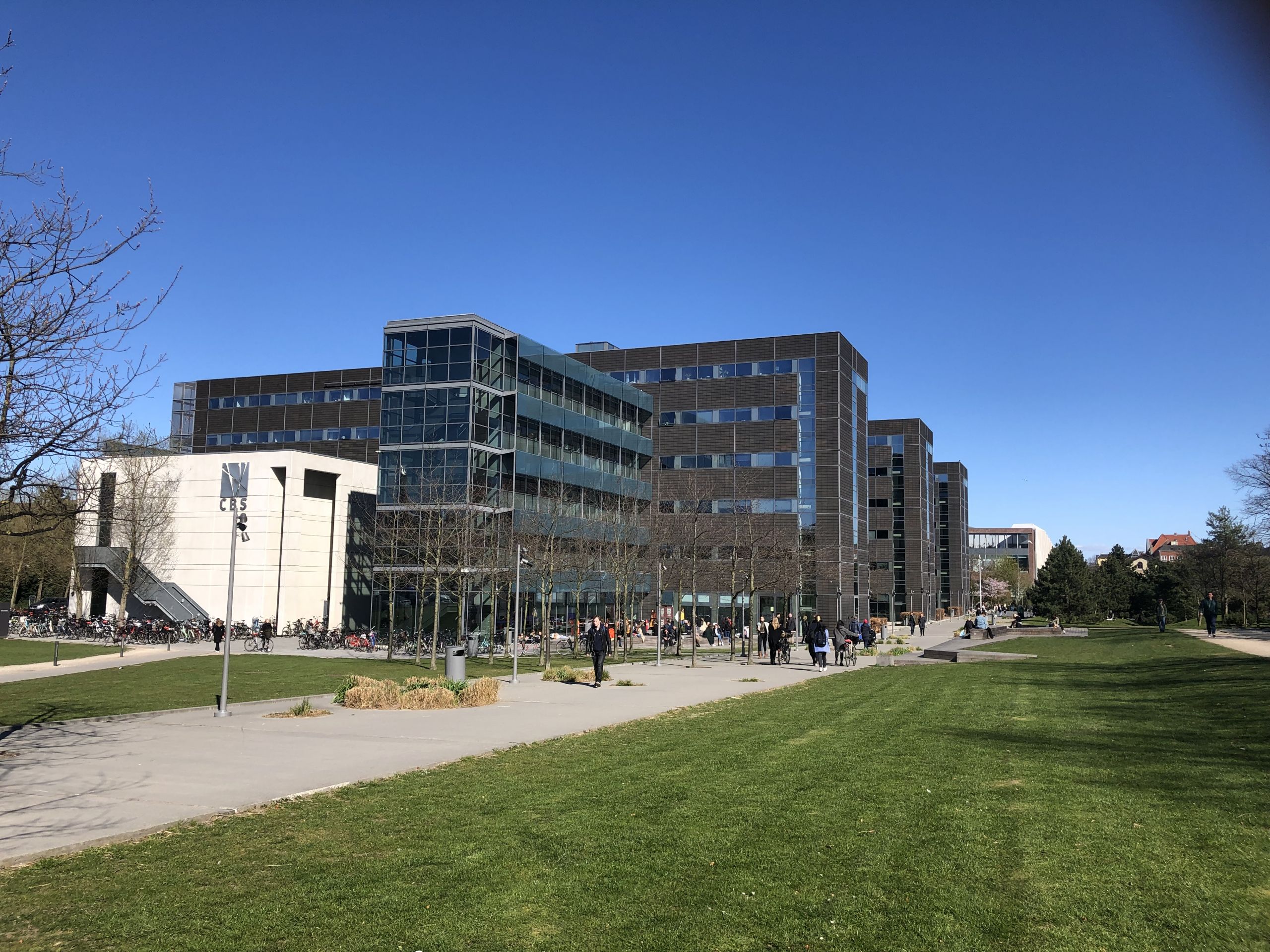
“Still, we have to keep in mind that the lawns are kept the way they are because we use them. We don’t have much space and we can’t use it for wild nature and semester start party, summer school and other activities,” Trine Lawson. Photo: CBS photo archive
“It’s our responsibility as architects and landscape architects to advise on what is the best solution from a professional standpoint, and then we have politics on top of that,” says Trine Lawson.
So far, the management has not requested swapping the green grass for wildflowers. But Trine Lawson leaves a glimmer of hope for those wanting more wild nature at CBS:
“We are testing the permaculture garden. If it’s a success and there are not too many problems, of course, it would be looked into. We would have a good showcase and could broaden it to a wider area of campus.
“Still, we have to keep in mind that the lawns are kept the way they are because we use them. We don’t have much space and we can’t use it for wild nature and semester start party, summer school and other activities.”
CBS Green Transitions Office is tasked with guiding CBS to focus on what can have the greatest impact.
According to Hanne Harmsen, focus on biodiversity in organisations is relatively new, which may be why it is not found in CBS’ current strategy documents such as the Strategic Campus Plan nor the Campus Sustainability Strategy.
But, she sees an increased focus on biodiversity emerging at CBS, in research, in the formation of a biodiversity network and informal debates about creating a more biodiversity friendly campus.
“Biodiversity is by many seen as the next big issue following a focus on CO2 reduction and I believe we must account more precisely for how we consider this in the years to come. Both in research and teaching and in our everyday life as students, staff and faculty where transport behaviour, buying behaviour and how biodiverse outside environments will all count.
“Wildflowers instead of grass at CBS might not have huge impacts, but living our values and ambitions makes our strategic focus on societal challenges much more honest.”


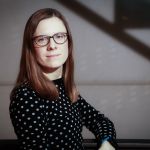
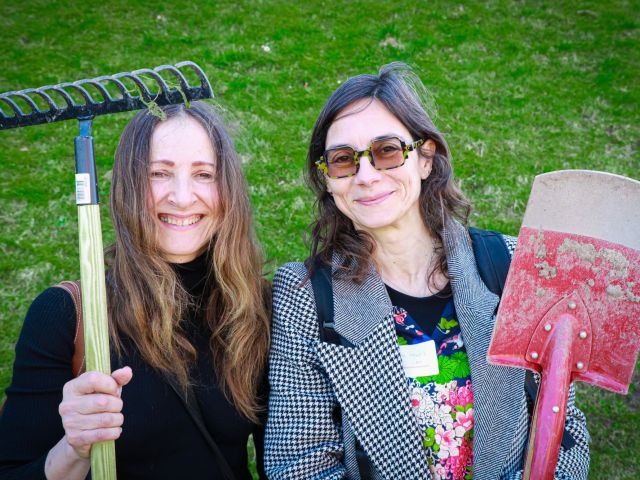






























































































































Comments